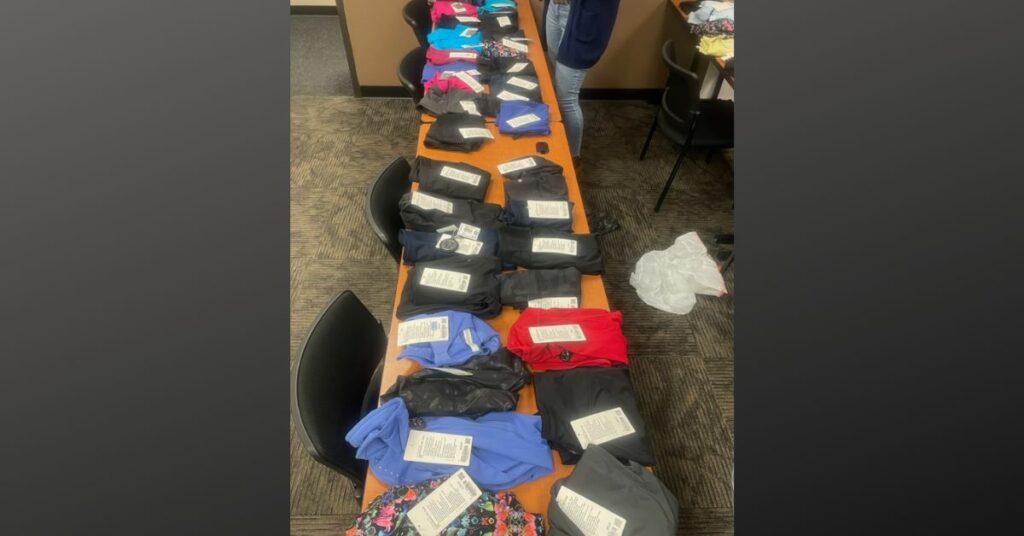Oregon’s parole board overwhelmingly rejected the bid of a renowned convicted killer who sought early release from state prison this month with the support of former Gov. Kate Brown and Multnomah County District Attorney Mike Schmidt.
In 2006, 38-year-old Danielle Cox pled guilty to aggravated murder in the 2003 torture and murdering of 22-year-old disabled Jessica Williams and was sentenced to life in prison without the possibility of parole for 25 years.
Cox, who was 18 at the time and went by the street name Shadowcat from the X-Men comics, was the daughter of middle-class parents who joined a violent street family that lured Williams, a young woman from Gladstone, to her death in Portland.
The victim’s sister and two former Multnomah County deputy district attorneys who prosecuted Cox argue that neither the nature of her offense nor the terms of her plea agreement should have qualified her for clemency from Brown. They stated that no one from Schmidt’s office contacted them to solicit their input, despite the fact that Oregon law mandates victim families’ participation.
“I don’t know what they were thinking,” said retired Multnomah County prosecutor Chuck French, who brought the case to court. He asserts that Schmidt’s office rubber-stamped her clemency application after a cursory review and simply regurgitated the remarks of her advocates in his recommendation to the governor. Before the governor departed office, they were pressed to complete this task.
Schmidt is running for re-election against one of his own deputies, and as a result, he and his progressive viewpoints are coming under increasing scrutiny. It also follows a failed lawsuit filed by district attorneys in Lane and Linn counties and family members of four violent crime victims challenging Brown’s expansive use of clemency powers.
Brown’s clemency order for Cox, signed on December 22 amid a frenzy of such commutations and pardons in her final days in office, commuted her minimum sentence and made her eligible to appear before the Oregon Board of Parole five years earlier than she had been previously.

Do you know that on Wednesday, June 28, Texas police released a body camera footage taken by one of their officers? It depicts the officer instructing children to fasten their seatbelts before pursuing and killing a mass shooter:
Cox graduated from Glencoe High School in Hillsboro after being raised in a middle-class Spokane family. She was a brilliant student who attended Pacific University on scholarship for the majority of a year. She pulled out of college in the spring of 2003 to join a “street family” whose members she had met in Pioneer Courthouse Square.
Cox was one of thirteen members of this gang when Williams, who, according to court documents, was born with fetal alcohol syndrome and had the mental capacity of a 12-year-old, joined them.
On the night of May 23, 2003, the group struck Williams severely for allegedly lying to and disobeying another member over a period of six and a half hours. According to court documents, Cox was one of three individuals who took Williams to an area near the eastern end of the Steel Bridge, where they continued beating her, stabbed her dozens of times, and attempted to burn her body to eliminate DNA evidence.
Cox has served more than 20 years of her sentence, the majority of which was served at Coffee Creek Correctional Facility. Schmidt declined a request for an interview. In a statement emailed by his office, he explained that he supported Cox’s clemency application based on both objective and subjective criteria, including her prison record and his belief that individuals can be redeemed.
He said –
“[W]hen a person has demonstrated accountability and rehabilitation, we have to consider the point at which prison is no longer serving a punitive purpose, but rather a retributive one.”
“Based on these factors, I was willing to extend my support for Ms. Cox’s request for a second chance.”
During her term in office, Brown exhibited an exceptional commitment to clemency. Before leaving office in January, she commuted 104 cases and granted 130 pardons, including 35 cases and 68 pardons in her final 10 months in office. She also issued clemency orders for groups of juvenile defendants, individuals convicted of marijuana possession, and those who assisted the state’s firefighting efforts while in custody.
Brown explained her reasoning for multiple cases, including Cox’s, in a January letter to Senate President Rob Wagner. Cox had made “excellent progress” and demonstrated extraordinary signs of rehabilitation, Brown wrote, adding that “her continued incarceration without an immediate opportunity to petition the Parole Board for release on parole does not serve the best interests of the State of Oregon.”
Many have shared and reacted to the news on Twitter –
1/Why are politicians meddling in prison sentences for violent criminals who are actually guilty?
“I don’t know what they were thinking,” said Chuck French, a retired Multnomah County prosecutor who brought the case to court.” https://t.co/NeaMOBCg4F
— Portland League of Pissed Off Voters (@PissedVotersPDX) June 29, 2023
Family of a Portland murder victim decries parole bid backed by Oregon leaders https://t.co/jZ2pG3QKol
Why Mike Schmidt MUST be defeated by Nathan Vasquez!— Joshua Marquis (@CoastdaMarquis) June 29, 2023
Family of a Portland murder victim decries parole bid backed by Oregon leaders.
Parole board said Cox “lacked insight and honesty about (the murder)” and “appeared to have much more extensive underlying criminality than she portrayed.”https://t.co/ygpUCQC50V
— Hillary Borrud (@hborrud) June 28, 2023
She stated that Brown’s decision was influenced by the information she received from Schmidt’s office. Cox’s family, teachers, corrections officers, and Senator Michael Dembrow, D-Portland, who met Cox through his work on prison education, all supported her application.
Schmidt had recommended to Brown two months prior that clemency be granted to Cox. Schmidt stated in an October letter to Brown that Cox had used her time at Coffee Creek to improve herself and others. He noted that she had not committed any disciplinary infractions since 2012, that she had participated in numerous self-improvement courses, and that she had played a crucial role in extending access to higher education at Coffee Creek.
Schmidt wrote –
“I want to recognize Ms. Cox’s commitment to change and the significant transformation she has achieved by offering my support for her clemency petition.”
“Commuting her sentence and allowing her to continue this work amongst our community would allow her to have an even broader impact.”
Because clemency can also affect the lives of victims and their families, state law mandates that district attorneys notify them of any pending clemency applications and submit their statements to the governor.
Over the course of nine months, Schmidt informed Brown that his office had left at least three voicemails for Williams’ parents but had not received a response. However, he did observe that when Cox had unsuccessfully applied for commutation in 2017, Williams’ parents had vigorously opposed any form of clemency.
Do you realize that hundreds of bills are awaiting Governor Tina Kotek’s final signature on her desk? Due to the conclusion of the legislative session, she has less than thirty days to evaluate the measures:
Amy Jones, Williams’ sister, was reached by phone this week and reported that their mother passed away in 2018, but that their father is still alive, their sister resides in their longtime home, and other members of her family are readily accessible. She stated that they were unaware of the proceedings involving Cox until one or two weeks prior to his parole board hearing.
She said –
“Whatever attempts they claim to have made, we were not notified.”
Former prosecutors who worked on the case were neither consulted nor asked to assist in locating the victim’s family. Liz Merah, Schmidt’s spokesperson, stated that, when possible, deputies may consult with former counterparts regarding clemency petitions.
She said –
“This clemency application was one of about 350 that our office received from the Brown administration.”
“Due to the volume of applications and the extensive review each one required, it was not viable to contact the original prosecutors in every case.”
After Brown commuted the 30-year minimum sentence of one of Cox’s co-defendants in the case, Carl Alsup, Norm Frink, one of the original prosecutors, said he readily reached Jones’ and Williams’ father.
Frink, who retired in 2012 said –
“I was able to get hold of them in days.”
“If little old retired me can do that, why can’t the district attorney of Multnomah County, particularly when he has the statutory obligation to do so?”
Aliza Kaplan, a professor at Lewis & Clark Law School and the director of its Criminal Justice Reform Clinic, asserts that Multnomah County has the state’s most comprehensive system for contacting the families of victims. She argued that the branch that evaluates clemency applications should be more isolated from prosecutors, as it is not their job to re-litigate past cases but rather to consider the current circumstances.
She stated that Williams’ father was one of the plaintiffs in the lawsuit filed against Brown last year regarding the sentence of Cox’s co-defendant and that the family should have been aware of Brown’s actions in general. This legal challenge failed when the Oregon Court of Appeals upheld the governor’s broad clemency powers in August. Brown’s action, with Schmidt’s support, allows Cox to reapply for early release every two years.
Jones said –
“When you hear what these people did to my sister, Cox being one of them, it’s mind blowing that they’re even considering this and that Schmidt’s office granted her the option.”
“What about some consideration for our family to not have to live through this again? It’s just not right.”
The parole board determined, following a 7 June hearing at Coffee Creek, that Cox provided contradictory accounts about her role in the murder of Williams, lacked insight and candor about it, and “appeared to have much more extensive underlying criminality than she portrayed.”
Its order read –
“The Board unanimously finds that Petitioner is not capable of rehabilitation within a reasonable period of time.”
This indicates that Cox is ineligible for early release, a process that would be the subject of another hearing typically months later, following a psychological evaluation and the formulation of a detailed parole plan.
Frink, who retired in 2012, noted that had Cox’s case gone to trial, she would have received a much longer sentence. However, as part of the plea bargain negotiated to secure her testimony against co-defendants, she relinquished her state and federal constitutional rights, including commutation, according to Frink. Regardless of the situation, the governor’s clemency powers trump any plea agreement.
Kaplan, a law professor, stated that many cases are “awful, heinous, and troubling in every way,” but that does not preclude the possibility of rehabilitation.
She said –
“Without question Danielle is not a public safety risk.”
“She has had an incredible record in prison, she served others, and she’ll be back in front of the board.”
Tell us what you think in the comments section. Be sure to add our website to your bookmarks so that you don’t miss any updates like these.





